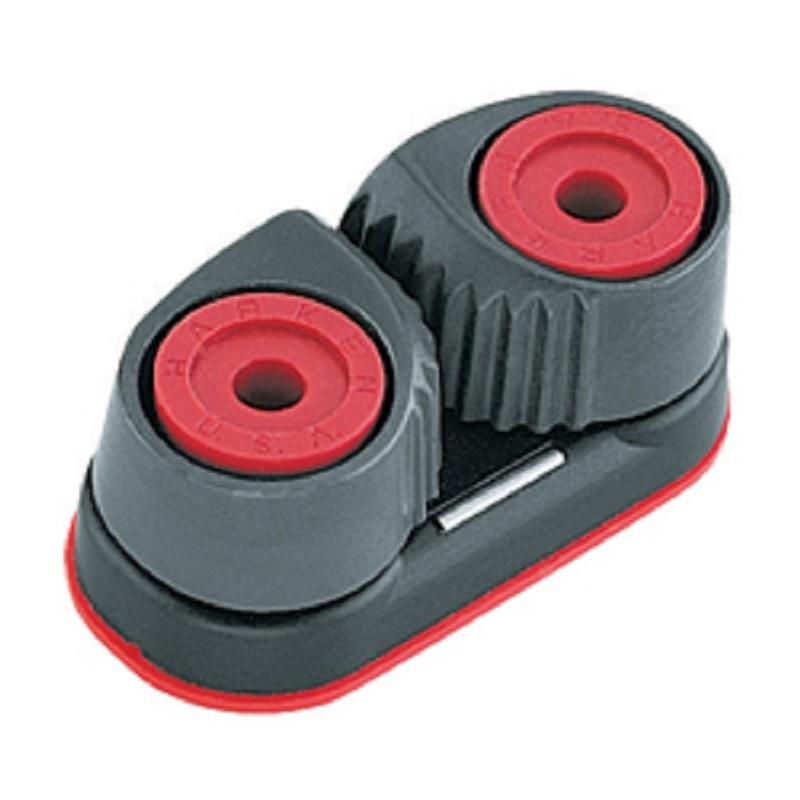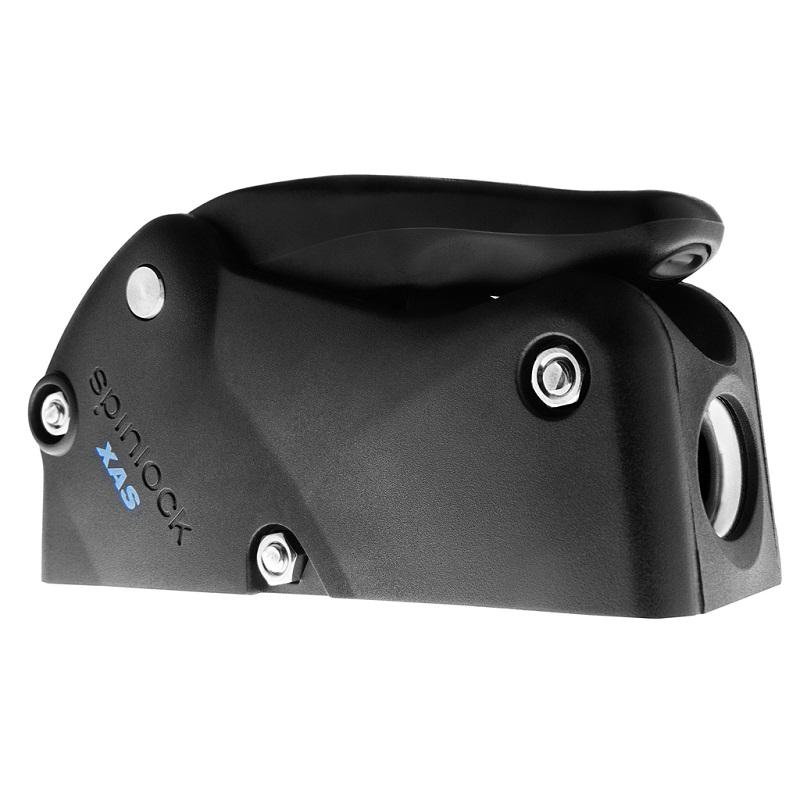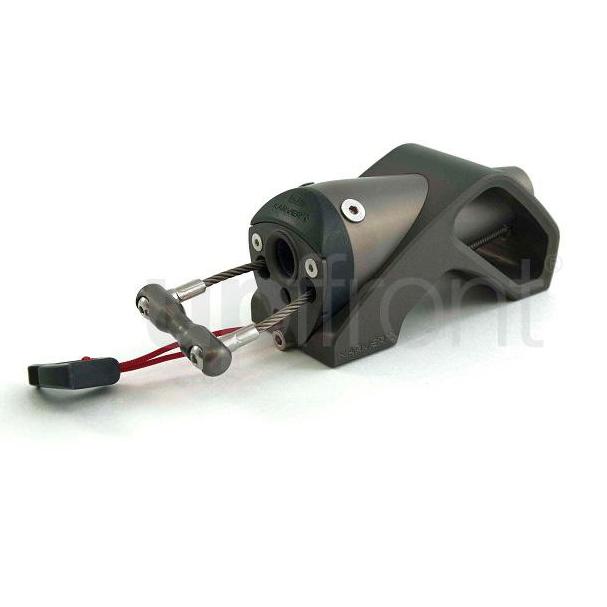When it comes to purchasing new sailing hardware, there are a plethora of options available. However, whilst some hardware has a clear place and purpose on a boat – such as hanks, locks and blocks – when it comes down to choosing between a sailing cleat, clutch or jammer it can be hard to know which to go for. The following blog will examine sailing cleats, clutches and jammers in turn, to enable you to determine the best option for securely holding a line on your boat.
Sailing Cleats:
 A cam cleat features two spring-loaded cams which pinch and hold the rope between metal teeth.
A cam cleat features two spring-loaded cams which pinch and hold the rope between metal teeth.
Ideal for small boats, cam cleats can accommodate relatively low loads, and are often the primary rope holding device on dinghy’s and small keel boats, or used within a purchase system on bigger boats.
To release the line, simply pull the line upward and out of the sailing cleat. This mechanism allows the rope to be adjusted easily, and the line can be quickly released under load.
Cam cleats are therefore well suited to dynamic lines - such as sheets and control lines - and can be quickly released in an emergency. Read our beginners guide to cam cleats here.
When to Choose a Sailing Cleat:
- For lines that are constantly adjusted or trimmed by hand
- For dynamic lines on small boats - e.g. control lines or sheets
- For relatively low loads
Rope Clutches:
 A rope clutch uses a toothed cam which is controlled by a handle. When the handle is down, the cam is engaged and the toothed plate keeps the rope in place. To fully release the line, simply open the clutch handle.
A rope clutch uses a toothed cam which is controlled by a handle. When the handle is down, the cam is engaged and the toothed plate keeps the rope in place. To fully release the line, simply open the clutch handle.
Clutches are ideal for controlling medium loads, and are therefore used extensively on medium sized boats. As a rule of thumb, choose a rope clutch when you would use a sailing cleat, but the load is higher; with a clutch, it is possible to lock off a halyard, main, jib or even spinnaker.
Like a sailing cleats, a rope clutches allow easy trimming and adjustment (lines can be pulled in with the clutch closed) and, in an emergency, a fully loaded line can be quickly released without the need for a winch. Having said that, in most situations it is better to take the loaded line onto a winch as a precaution, before releasing the clutch and also to minimize wear and tear.
As a rope clutches are more complex than a sailing cleats, there are more moving parts - and so more maintenance is required. Explore our blog on the Spinlock rope clutch range here.
When to Choose a Rope Clutch:
- For lines that are regularly adjusted
- For lines on medium boats – e.g. halyards
- For medium loads
Rope Jammers:
 Finally, a rope jammer works in much the same way as a rope clutch, but the handle cannot be released whilst under heavy load.
Finally, a rope jammer works in much the same way as a rope clutch, but the handle cannot be released whilst under heavy load.
Instead, the load in the line must first be taken to a winch and tensioned so all the load is now off the jammer, and only then can the handle of the jammer be pulled out and the rope released.
As a result, no adjustment is possible, making jammers a good option for permanently loaded lines such as halyards on larger boats.
Arguably slightly more work than a clutch, a jammer is a good choice when the load is high and you need a completely strong, secure and reliable option – sometimes a jammer is the only option that can accommodate high loads on larger boats!
Although there are some safety implications of not being able to quickly release the line, there are relatively few moving parts which results in lesser maintenance of the rope jammer.
When to Choose a Rope Jammer:
- For lines that are permanently loaded for extended periods of time
- For lines on bigger boats – e.g. halyards
- For high loads
If you have any questions about clutches and organisers, please feel free to email us at [email protected], or click the link below to see our full range:


Sailing Cleats, Clutches and Jammers – What’s the difference?